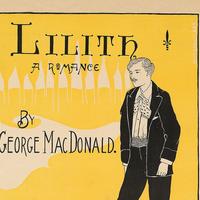CHAPTER XLVII. THE "ENDLESS ENDING"
As yet I have not found Lona, but Mara is much with me. She has taught me many things, and is teaching me more.
Can it be that that last waking also was in the dream? that I am still in the chamber of death, asleep and dreaming, not yet ripe enough to wake? Or can it be that I did not go to sleep outright and heartily, and so have come awake too soon? If that waking was itself but a dream, surely it was a dream of a better waking yet to come, and I have not been the sport of a false vision! Such a dream must have yet lovelier truth at the heart of its dreaming!
In moments of doubt I cry,
"Could God Himself create such lovely things as I dreamed?" "Whence then came thy dream?" answers Hope.
"Out of my dark self, into the light of my consciousness." "But whence first into thy dark self?" rejoins Hope.
"My brain was its mother, and the fever in my blood its father." "Say rather," suggests Hope, "thy brain was the violin whence it issued, and the fever in thy blood the bow that drew it forth.—But who made the violin? and who guided the bow across its strings? Say rather, again—who set the song birds each on its bough in the tree of life, and startled each in its order from its perch? Whence came the fantasia? and whence the life that danced thereto? Didst THOU say, in the dark of thy own unconscious self, 'Let beauty be; let truth seem!' and straightway beauty was, and truth but seemed?" Man dreams and desires; God broods and wills and quickens.
When a man dreams his own dream, he is the sport of his dream; when Another gives it him, that Other is able to fulfil it.
I have never again sought the mirror. The hand sent me back: I will not go out again by that door! "All the days of my appointed time will I wait till my change come." Now and then, when I look round on my books, they seem to waver as if a wind rippled their solid mass, and another world were about to break through. Sometimes when I am abroad, a like thing takes place; the heavens and the earth, the trees and the grass appear for a moment to shake as if about to pass away; then, lo, they have settled again into the old familiar face! At times I seem to hear whisperings around me, as if some that loved me were talking of me; but when I would distinguish the words, they cease, and all is very still. I know not whether these things rise in my brain, or enter it from without. I do not seek them; they come, and I let them go.
Strange dim memories, which will not abide identification, often, through misty windows of the past, look out upon me in the broad daylight, but I never dream now. It may be, notwithstanding, that, when most awake, I am only dreaming the more! But when I wake at last into that life which, as a mother her child, carries this life in its bosom, I shall know that I wake, and shall doubt no more.
I wait; asleep or awake, I wait.
Novalis says, "Our life is no dream, but it should and will perhaps become one."

